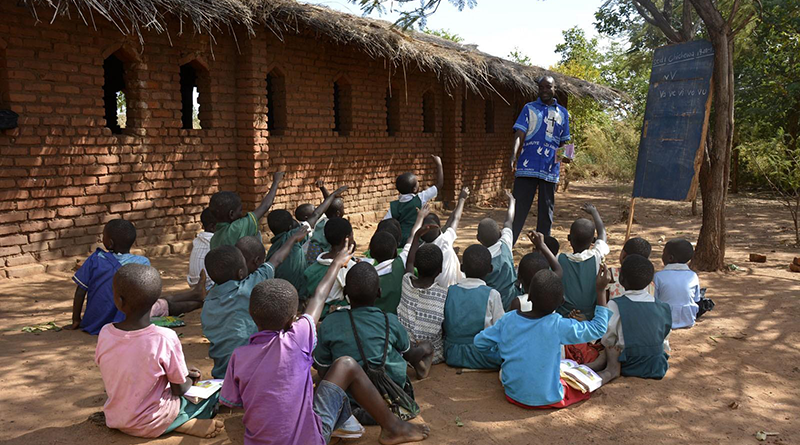Ethical Decay Erodes Teachers’ Fight for Fair Pay
The ongoing plight of Zimbabwean civil servants, particularly teachers, is a sobering reminder of the systemic neglect and economic injustices that define the nation’s public sector.
Complaints of severe underpayment by civil servants have become a common refrain in Zimbabwe, yet collective efforts to address these injustices remain disjointed and ineffective.
Calls for strikes and other forms of collective action by various unions have largely failed, leaving underpaid workers to navigate the dire reality of “slave wages.”
Isolated cries of discontent echo in the corridors of poverty, but a united and determined pushback remains elusive.
In this atmosphere of despair, survival has taken precedence.
Teachers, like many civil servants, have resorted to alternative, often unethical means of supplementing their meager incomes.
This behavior appears to reflect the “make money” philosophy promoted by President Emmerson Mnangagwa, who has urged Zimbabweans to eschew collective action in favor of individual enterprise.
While this rhetoric may seem pragmatic, in practice it encourages corruption, benefiting only the well-connected elites with access to lucrative inflated tenders and opportunities to manipulate systems for personal gain.
Mnangagwa’s mantra, if stripped of its appealing veneer, is essentially a call to exploit any and all available opportunities, legal or illegal a philosophy epitomised by the Shona proverb,
“Mbudzi inodya payakasungirirwa.”
Loosely translated: “A goat eats where it is tethered.”
This mindset has fueled rampant corruption among the politically connected elites while starving the nation’s public services of critical investment.
The devastating effects of this culture of corruption are evident in crumbling hospitals, decaying schools, and a civil service on the brink of collapse.
While government elites amass wealth through misappropriated public funds, civil servants often endure delayed or insufficient paychecks.
*A Mirror of Injustice*
In such a broken system, the moral fabric of the workforce has frayed.
Teachers, who are victims of an unjust system, have adopted similarly exploitative practices.
To bridge the gap left by paltry government salaries, many educators demand additional “incentives” from parents, effectively shifting the burden of underpayment onto poverty-stricken families.
Students unable to meet these demands are denied access to education, perpetuating a cycle of injustice.
This mirrors the behavior of a government that exploits its citizens to enrich a privileged few.
Just as teachers lose the moral high ground by exploiting vulnerable learners, they forfeit the credibility needed to demand justice from the state.
The fight for fair wages is paralysed by this moral inconsistency.
Albert Einstein once observed, “You cannot solve a problem with the same thinking that created it.”
If corruption and injustice are the root causes of our struggles, how can we expect to combat these vices while practicing them ourselves?
Nigerian polymath, award-winning management consultant, education psychologist, Mmanti Umoh stresses the necessity of good leadership to eradicate corruption.
“Leaders don’t care about followers, leaders care about something bigger than that.
“Leaders care about making an impact and difference in their community, Influencers almost never go on to be leaders, leaders always result in being influential,” said Umoh.
*Reclaiming the Moral High Ground*
To win the fight for a living wage, teachers and civil servants must first wage an internal battle against their own weaknesses.
Amilcar Cabral aptly warned that external struggles cannot succeed without internal transformation.
Teachers must reject the normalisation of corruption and embrace ethical conduct.
Imagine a unified teaching profession that refuses to demand extra payments from parents.
Such integrity would galvanise public support, compelling the government to address teachers’ legitimate grievances.
Parents, freed from financial exploitation, would stand in solidarity with educators, strengthening their collective voice.
The broader struggle for democracy in Zimbabwe faces a similar moral dilemma.
Many purported democracy advocates lack the genuine commitment to the principles they claim to uphold, undermining the credibility and effectiveness of their efforts.
*A Call to Action*
The fight for justice, whether in wages or governance, begins with self-reflection and moral renewal.
By cleansing our hearts of corruption and injustice, we can regain the conviction necessary to challenge these vices at every level.
Victory is possible, but it requires unity, integrity, and an unwavering commitment to fairness.
Let us, as civil servants and citizens, transform ourselves into the upright individuals our nation desperately needs.
Only then can we demand and achieve the justice we seek.
*By Obert Masaraure, (ARTUZ National President)*
+263776129336
obertmasaraure@gmail.com




